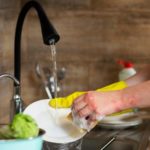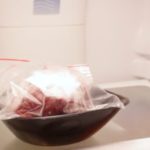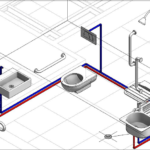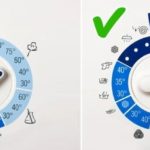Many people often use hot water to wash pans that are greasy. Hot water helps to separate the layer of grease on the pan, making it easier and faster to clean. However, experts advise against using this method to wash pans.
Why should you not wash greasy pans with hot water?
One of the reasons why we should not wash greasy pans with hot water is that the hot water will cause the grease to melt and flow down the drain, but then it will cool and solidify in the pipes. Over time, the pipes will accumulate a thick layer of hardened grease, causing drainage blockages.
According to The Kitchn, Doyle James, President of Mr. Rooter Plumbing (USA), said: “Cold water is actually a better choice for cleaning grease or fat residues on your cooking utensils”.
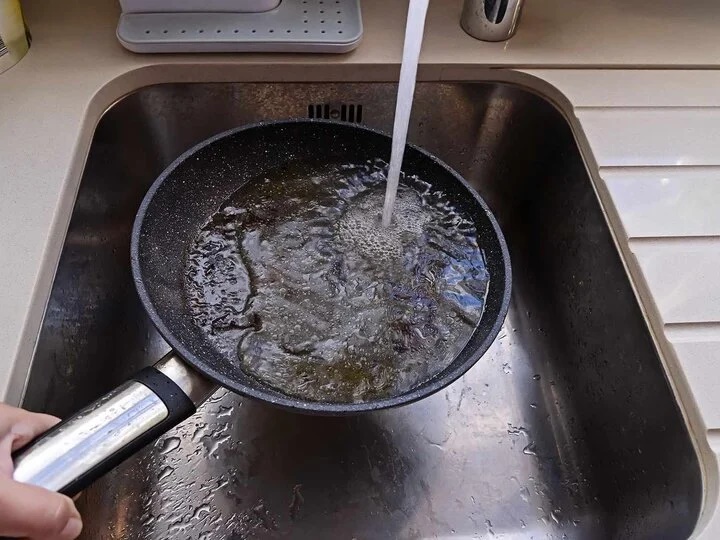
Do you know why you should not wash greasy pans with hot water? (Photo: Allrecipes)
If hot water melts and then solidifies this grease and fat residue, forming a layer on the pipes, cold water does the opposite. It keeps the grease in a solid state, causing it to be carried away and not causing blockages. “When fat and oil come into contact with cold water, they quickly solidify, and the water and gravity will wash them away,” James said.
Although using cold water to wash pans with excessive grease is better than using hot water, plumbers advise against pouring any type of grease down the drain if possible. This helps you avoid serious drain blockages.
“Too much accumulated grease can quickly overload the water treatment system. Therefore, the more fat and grease you remove, the better. Wipe off excess grease with a paper towel or a piece of cloth and throw it in the trash. This prevents grease from flowing into the drain,” James said.
A small amount of grease or cooking oil may not seem like a big issue. But in the long run, many small pieces of grease can accumulate into a large mass that cannot be moved in the drainage pipes. This will require you to spend money to hire someone to unclog the drain.
Therefore, do not forget to remove excess grease from the pan before washing it with cold water and use plenty of dish soap to limit the amount of oil waste going into the drain, reducing the risk of grease sticking to the surface of the drainage pipes.
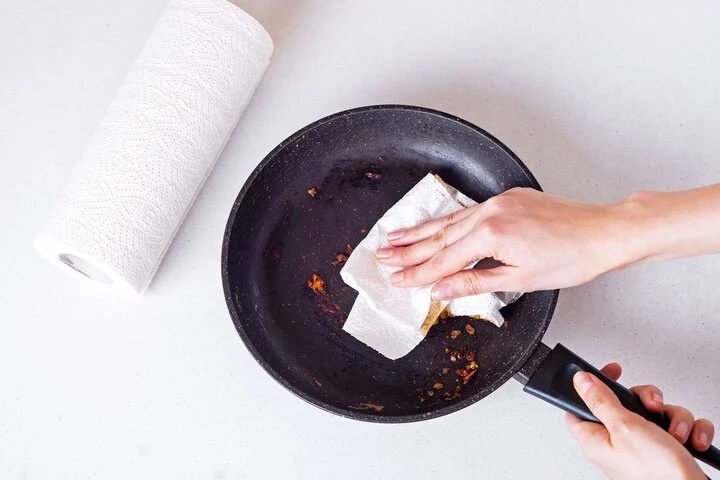 Another reason why you should not wash greasy pans with hot water is that it can shorten the lifespan of the pan. If you immediately switch from washing the pan with hot water to rinsing it with cold water, the thermal shock can cause the pan to warp and crack. The bottom surface of the pan will also have “hot and cold spots,” uneven heat transfer, making the food cooked unevenly.
Another reason why you should not wash greasy pans with hot water is that it can shorten the lifespan of the pan. If you immediately switch from washing the pan with hot water to rinsing it with cold water, the thermal shock can cause the pan to warp and crack. The bottom surface of the pan will also have “hot and cold spots,” uneven heat transfer, making the food cooked unevenly.
Methods to clean heavily greased pans
– Pour vinegar into the pan and bring it to a boil. Immediately, the grease stains will be separated and you can easily wash them off with dish soap.
– Cut slices of lemon, sprinkle a little salt on the surface of the lemon slice, and use it to scrub the entire surface of the pan. Then, simply use a paper towel to gently wipe the pan and wash it with dish soap. Note: This method should not be used for pans with non-stick coatings because the friction of the lemon and salt can cause the non-stick coating to peel off.
– If you have baking soda, it is a powerful helper for removing grease on the pan. Mix baking soda and water in the pan and soak for about 20 minutes. Then, use a dish scrubber to clean the pan, and all traces of grease on the pan will disappear.
Source: VTC news
Creating an Effortless System for Installing Interior Drainage Pipes
Having trouble figuring out how to set up drainage pipes in your home? Look no further! Here are some easy-to-follow tips for efficiently constructing a drainage system with minimal hassle.

























